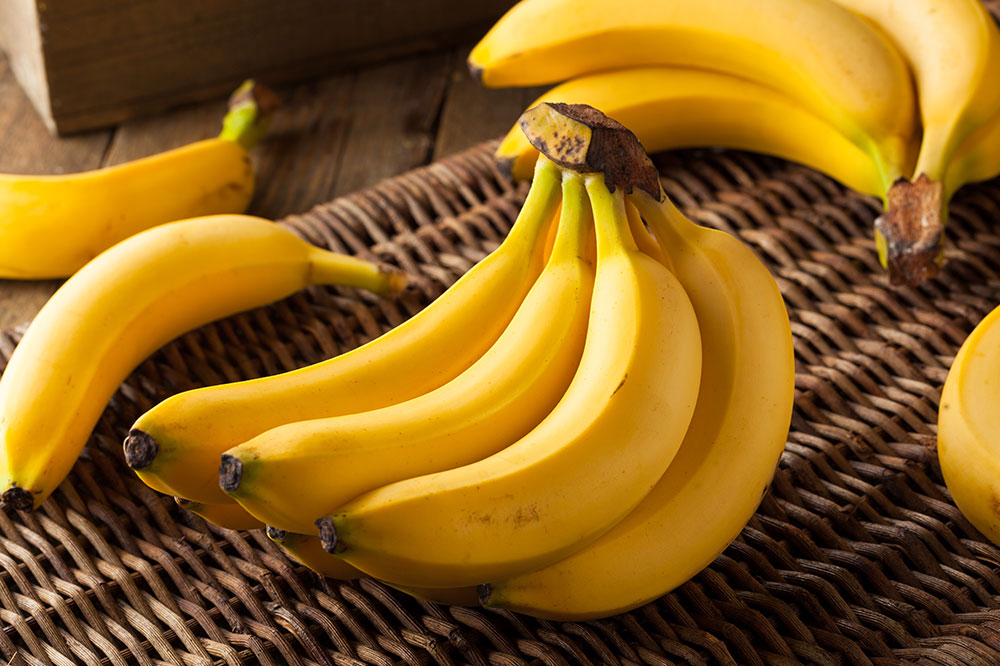11 Foods That May Trigger Epilepsy

Epilepsy is a brain disorder that can cause recurring seizures. Today, there are different types of epilepsy where the cause of some is known, and for others, the causes haven’t been identified yet. This condition is quite common. It can affect people across genders and ethnic backgrounds. According to estimates, 1 in 26 people develop the condition. Fortunately, there are treatments available to control the seizures. This can include avoiding trigger foods.
Foods that can trigger or worsen epilepsy
In most cases, symptoms of epilepsy depend on the type of seizure. This is because the condition is caused due to certain activity in the brain. However, making certain lifestyle changes can help control the symptoms. Hence, here are some foods that can trigger or worsen epilepsy and its associated symptoms.
Bananas
While bananas have a variety of health benefits, their potassium content can cause health issues for people with epilepsy. Excessive consumption of the fruit can lead to high potassium levels in the body. This can give way to periodic seizures that can affect the quality of life of the patient. Therefore, patients are suggested to consume the fruit in fewer amounts or avoid it altogether.
Coffee
Caffeinated beverages like coffee and tea often trigger an overactive central nervous system ( CNS). Furthermore, according to the Epilepsy Society, drinking high amounts of coffee can increase susceptibility to seizures. Hence, one must either consume coffee and other beverages in moderation or steer clear of them entirely to avoid triggering epilepsy-related seizures.
Monosodium glutamate
Also known as MSG, monosodium glutamate is often used in processed foods as an additive. This food additive, either singularly or in combination with others, can lead to excessive nerve cell firing. Hence, MSG can be considered one of the top triggers for neurological conditions like epilepsy, Parkinson, and more. Patients are suggested to opt for fresh vegetables such as lentils, peas, and beans as an alternative.
Grapefruit
While fresh fruits and vegetables are beneficial for health, grapefruits can be considered an exception for epilepsy patients. Evidence suggests that this particular fruit can hamper the treatment of epilepsy and sometimes even worsen the condition. This way, the treatment may become less effective and increase the number of seizures.
Soda
This widely consumed beverage contains artificial sweeteners that act as food additives, causing an increase in the number of seizures. While more studies are needed, primary research suggests that artificial sweeteners like aspartame can make one more susceptible to seizures. Hence in addition to soda, healthcare professionals advise patients to steer clear of other food items containing sweeteners, such as candy, jellies, pudding, and all types of packaged baked foods.
Chocolate
Usually, chocolate’s main ingredient, cocoa, is considered beneficial for health. However, in the case of epilepsy patients, this ingredient can prove to be harmful. Cocoa, quite similar to caffeine, possesses the ability to increase seizures and even reduce the effectiveness of the treatment involved. Hence, patients are suggested to consume other healthy alternatives, such as oatmeal, as a snack whenever needed.
Starfruit
As mentioned previously, certain fruits can hinder the treatment of epilepsy, causing an increase in seizures and worsening the condition. This includes popular fruits such as starfruit. Although limited, evidence suggests that patients with epilepsy should limit or avoid starfruit consumption to avoid an increase in epilepsy-related seizures. Alternatively, one can try opting for low-carb fruits like berries that can provide the body with the necessary nutrients.
Ginkgo seeds
While ginkgo seeds are rich in antioxidants, they can also lead to health issues if consumed excessively, especially in patients with epilepsy. According to studies, when an individual consumes excessive amounts of ginkgo seeds, it results in excess amounts of a component known as 4-0-methyl pyridoxine, which can prove to be poisonous. This can, in turn, trigger epileptic convulsions and vomiting. Furthermore, the problem can intensify when the patient has a deficiency of Vitamin B6 and cause the neurons in the body to become irritable and even lead to repetitive convulsions.
Potatoes
A staple across all households in the country, potatoes have a medium to high glycemic index. Usually, foods containing a medium to high glycemic index can lead to health issues in epilepsy patients. It can lead to triggering frequent seizures. Furthermore, potatoes contain high amounts of starch. Hence, healthcare professionals suggest avoiding potatoes and opting for foods low in carbs and proteins, such as turkey, bacon, and ham.
Pizza
In most cases, foods low in carbs prove to be beneficial for epilepsy patients. While on the other hand, healthcare professionals suggest patients avoid foods rich in carbohydrates, such as pizza. Moreover, baked goods like pizza are usually prepared using refined flour, which contains trans fats that can cause heart issues such as arrhythmia. This heart problem may cause convulsive syncope, often characterized by seizure-like symptoms.
Cakes
An increase in sugar intake can spike the body’s sugar levels. This can trigger seizures in some patients. Hence it is considered best to avoid sugary foods such as cookies, cakes and even beverages such as juices and soft drinks. It can also prove beneficial to avoid processed foods high in sugar, such as yogurt and ice cream.
In addition to the foods mentioned above, people with epilepsy must also steer clear of other known triggers, such as reduced sleep, stress, and even flashing lights. Further, some epileptic patients have proven to be triggered by certain essential oils such as juniper. Moreover, some nutrient deficiencies have also proven to worsen seizures. Hence, people with epilepsy are suggested to make changes in their meal plans after consulting a healthcare professional. This can result in increased clarity of possible triggers and nutrient deficiencies. Moreover, it can lead to developing a treatment plan that caters to their symptoms.



